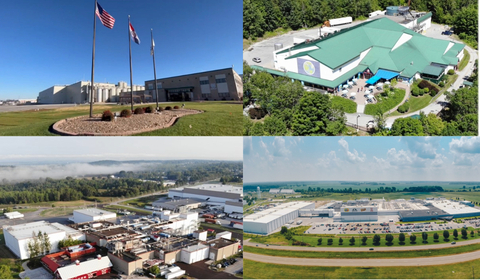Unilever Advances Major Decarbonization Project at Four U.S. Factories
Company selected by

The facility upgrades will significantly reduce carbon emissions at the factories in
Specifically, Unilever Ice Cream will replace natural gas boilers with electric boilers and industrial heat pumps using waste heat recovery. Unilever reached
The facility upgrades will significantly reduce carbon emissions and will create a pathway to address
This project was chosen as a selectee for award negotiations by the
“We are making progress to decarbonize our ice cream business, and these substantial upgrades will mean a major cut in emissions,” said Sandeep Desai, Chief Product Supply Chain Officer, Unilever Ice Cream. “This step moves us closer to our sustainability goals and is a significant investment in the future for our business and planet.”
Read more about the actions Unilever is taking to tackle climate change in its recently updated Climate Transition Action Plan here: Unilever.com/CTAP.
About Unilever in
Unilever is one of the world’s leading suppliers of Beauty & Wellbeing, Personal Care, Home Care, Nutrition and Ice Cream products, with sales in over 190 countries and products used by 3.4 billion people every day. We have 127,000 employees and generated sales of
Our leading brands in
For more information on Unilever
View source version on businesswire.com: https://www.businesswire.com/news/home/20240325246937/en/
Catherine
mediarelations.usa@unilever.com
201-500-9100
Source: Unilever









